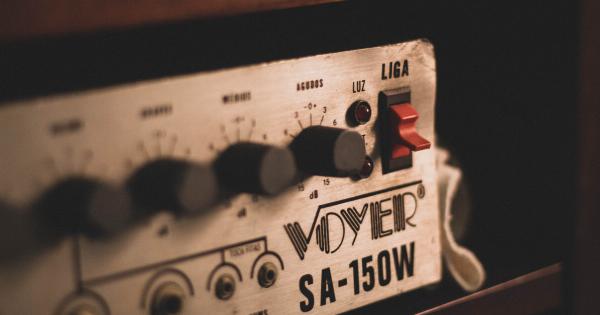Music therapy has been used for centuries to relax and calm the mind. Over the years, research has shown that music therapy has a significant impact on mental health. This is especially true for patients with psychiatric disorders like anxiety.
Studies have found that music therapy can significantly reduce anxiety levels in these patients. In this article, we will explore the benefits of music therapy for anxiety in psychiatric patients.
What is music therapy?
Music therapy is an evidence-based practice that involves the use of music to achieve therapeutic goals. It is a non-invasive, non-pharmacological approach that uses music to improve physical, cognitive and emotional well-being.
Music therapists use a variety of techniques like active listening, songwriting, singing, and playing instruments to address the specific needs of their patients.
Music therapy and anxiety
Anxiety disorder is a common psychiatric condition characterized by feelings of worry, fear, and panic. It can be a debilitating condition that affects a person’s daily activities and quality of life.
Music therapy can help patients with anxiety disorder in many ways. First, music therapy helps patients to relax and calms the mind. Listening to calming music can reduce the heart rate, blood pressure, and muscle tension in the body. This, in turn, reduces anxiety levels in the patient.
Furthermore, music therapy can also help patients to express their emotions. Many patients with anxiety disorder find it challenging to express their feelings verbally.
Music therapy provides an alternative way for patients to express themselves and communicate their emotions. Songwriting, for example, allows patients to write their feelings and thoughts down in a creative and non-threatening way.
Research on music therapy and anxiety
There have been numerous studies on music therapy and anxiety. Many of these studies have shown that music therapy can be an effective treatment for anxiety in psychiatric patients.
For example, a study conducted by the University of Wisconsin found that music therapy significantly reduced anxiety levels in patients undergoing hemodialysis. Another study conducted by the University of California found that music therapy reduced anxiety levels in patients undergoing surgery.
In another study published in the Journal of Clinical Psychology, researchers found that music therapy decreased anxiety and depression symptoms in patients with major depressive disorder.
The study also found that music therapy improved the patients’ overall mood and quality of life.
Types of music therapy interventions for anxiety
There are different types of music therapy interventions that can be used to help patients with anxiety. These include the following:.
- Active listening: This involves listening to music that is specifically selected to promote relaxation and calmness. The therapist may also guide the patient to focus on specific elements of the music like the rhythm or melody.
- Singing: Singing has been found to have a calming effect on the mind and body. Patients can sing along to their favorite songs or participate in group singing sessions.
- Playing instruments: Patients can learn to play simple instruments like the guitar or keyboard. This can be a fun and enjoyable experience that promotes relaxation and helps to reduce anxiety levels.
- Songwriting: Writing and composing songs is a creative way for patients to express their emotions and thoughts. It can be especially helpful for patients who have trouble verbalizing their feelings.
Conclusion
In conclusion, music therapy is a promising treatment for patients with anxiety disorder. It provides a non-invasive, non-pharmacological approach to managing anxiety symptoms.
Music therapy has been shown to reduce anxiety levels in psychiatric patients, and can be used in conjunction with other therapies to achieve optimal results. If you or a loved one is suffering from anxiety disorder, consider music therapy as a treatment option.






























